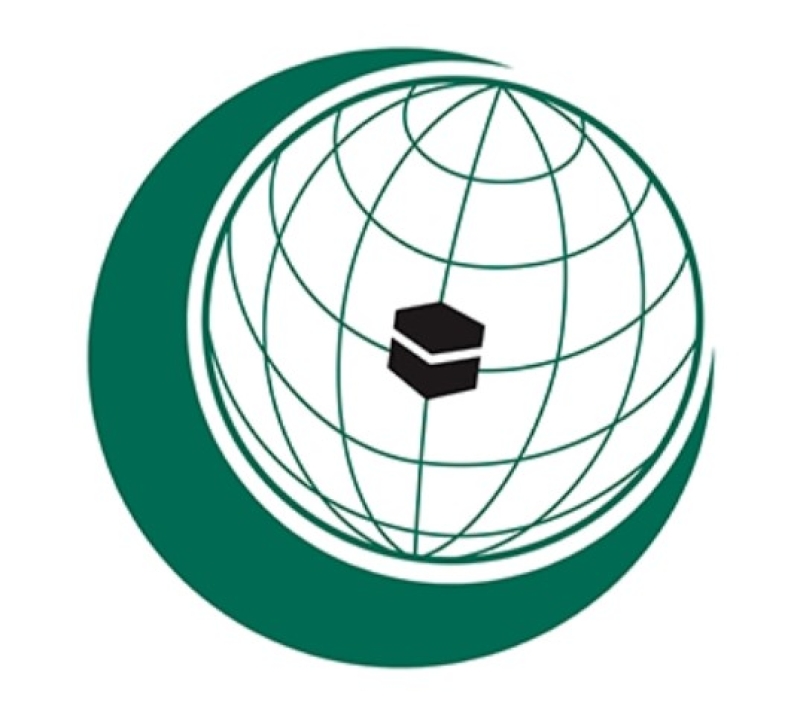- India Sees 9% Drop in Foreign Tourists as Bangladesh Visits Plunge |
- Dhaka Urges Restraint in Pakistan-Afghan War |
- Guterres Urges Action on Safe Migration Pact |
- OpenAI Raises $110B in Amazon-Led Funding |
- Puppet show enchants Children as Boi Mela comes alive on day 2 |
73 Palestinian Prisoners Died of torture in Israeli Prisons Since Oct 7

OIC Logo
Jeddah, 06-07-2025: The number of Palestinian arrests in the West Bank and occupied Al-Quds from October 7, 2023, to the end of June 2025 reached 23,285. The Organization of Islamic Cooperation’s Media Observatory on Israeli Crimes against Palestinians noted an increase of up to 200 detainees above the monthly average before October 7, 2023.
It is worth noting that June 2025 witnessed the highest number of arrests in 2024 and 2025, with 1,244 arrests, representing a nearly double increase compared to previous months, when the average number of arrests was between 600 and 900 per month.
The media spokesman for the Palestinian Prisoners’ Affairs Authority, Thaer Shreiteh, stated that the total number of detainees in the West Bank and occupied Al-Quds is estimated at 10,500, in addition to more than 2,000 detainees from the Gaza Strip, not taking into account hundreds of cases of enforced disappearance, missing persons, and other Palestinians whose fate remains unknown in the Gaza Strip.
It is worth noting that the Palestinian Ministry of Health had announced in the past few days the documentation of the martyrdom of 223 Palestinians after their remains were found and their personal information was verified.
On the other hand, the OIC Media Observatory’s reading of the situation revealed that the occupation forces’ continued daily arrest campaigns with similar numbers does not reflect a spontaneous activity, but rather represent a regular pattern that suggests specific plans, especially when compared to the numbers of other crimes that witness a similar sequence.
In response to a question from the OIC Media Observatory, Thaer Shreiteh declared that "The number of prisoners who have died in Israeli occupation prisons is 73,” stressing that the majority of them were subjected to medical neglect and torture as part of an announced Israeli policy supported by Israeli military and political circles. Shreiteh explained that the total number of martyred prisoners is 310 since 1967, noting that “there is another number that the occupation authorities are reluctant to announce, as the death of one prisoner is announced many months after his death and may even take one full year to be announced.”
The Observatory thus noted that the martyrdom of nearly a quarter of Palestinians due to torture in Israeli prisons in the last two years, out of a total of nearly sixty years, confirms a clear and negative change in Israeli behavior and the serious crimes committed by the occupation government, ranging from crimes of genocide, ethnic cleansing, and forced displacement to torture in prisons and the denial of the detainees’ most basic rights.
Shreiteh emphasized that the Commission of Prisoners’ Affairs is forced to communicate with the occupation authorities through lawyers to verify specific names in occupation prisons. He estimated that “the total number of prisoners in Israeli prisons ranges between 11,000 and 12,000 Palestinians from all Palestinian territories, with no specific number of those arrested in the Gaza Strip.”
Shriteh explained that “there are no accurate statistics on the number of released prisoners who have been arrested,” but he confirmed that “the majority of prisoners in Israeli prisons are prisoners released in previous years,” or even those who were released at the end of their prison terms. He reiterated that arrest campaigns typically target prisoners who had previously been released.
In response to a question regarding the high rate of arrests in the governorates of Al-Khalil, Nablus, and Ramallah, Shriteh said that this may be due to the high population density in those areas and the confrontations that occur between Palestinians and the occupation forces resulting from increased settlement activity there, which results in settler attacks on villagers and farmers. He noted that all segments of the Palestinian people are vulnerable to Israeli attacks. Shreitah emphasized that the arrest campaigns carried out by the occupation forces against the Palestinian people have been intense since October 7, 2023, noting that this phase is considered the most difficult for Palestinian detainees in Israeli prisons. – OIC News

